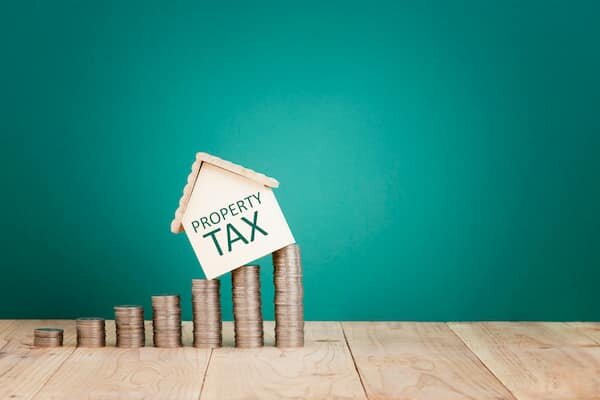Feeling like watching or listening instead? Click play on the video below.
Selling your home can be like ripping off a band-aid. You just want to do it quickly and move on. But, as with any wound, there’s always the chance of a little sting. And in this case, that sting comes in the form of taxes. Yep, you may have to deal with the dreaded tax man if you made a profit on the sale of your San Francisco home. But fear not! With a little bit of knowledge about the relevant tax rules, you can minimize the sting and keep more money in your pocket. So, let’s dive into the tax implications of selling your home in San Francisco, shall we?
The Likelihood of Paying Taxes on the Sale of Your Home
Selling your home in San Francisco can be a lucrative endeavor, but it can also come with a hefty tax bill. If your home has appreciated significantly, as is often the case in the San Francisco market, you could be in for a surprise at tax time. This is because your home is considered an asset and is subject to capital gains taxes.
At tax time, the biggest question for someone who recently sold a home is whether they will have to pay federal capital gains taxes on the profit. Capital gains refer to the amount of money you make from selling capital assets, such as property and cars.
To add to the challenge, home prices in San Francisco rose dramatically between 2020 and 2022. This means that if you held your home during this time, your home probably experienced significant capital gains. So, it’s important to be prepared for the possibility of paying taxes on the sale of your home.
How Capital Gains Taxes Work
If you’re planning to sell your property in San Francisco, you should be aware of the capital gains taxes you might have to pay on the profits you make from the sale.
According to the IRS, a capital gains tax is applied when a capital asset is sold and profits are earned. This means that your home, which is considered an asset, is also subject to capital gains taxes.
The IRS categorizes capital asset gains into two types: short-term gains and long-term gains. If you’ve owned your home for less than a year, any profit you make will be considered a short-term gain. If you’ve owned your home for a year or more, the profit will be considered a long-term gain. Depending on the length of time you’ve owned the property and your income level, your capital gains tax rate will vary.
If you are looking to sell a home in San Francisco, the amount of tax you are obligated to pay may depend on how long you have owned the property and your current income and filing status. Short-term gains from a sale will be taxed at your ordinary income tax rate. Long-term gains, however, often receive more lenient taxes and can range from 0% to 28%. Additionally, depending on specific conditions, the first $250,000 to $500,000 of a sale may be eligible for exclusion from taxation entirely.
How to Avoid Capital Gains Tax
Selling your home in San Francisco can result in a significant financial gain, but it can also mean owing capital gains taxes. However, there are ways to avoid or minimize these taxes, and it starts with taking advantage of the IRS exclusion rules.
If you’re a homeowner who meets certain criteria, you may be able to exclude up to $250,000 of the gain from the sale of your home from your taxable income, or up to $500,000 if you’re married and filing jointly.
To qualify for this exclusion, you must have owned and lived in your home as your primary residence for at least two of the five years prior to the sale. Additionally, you must not have excluded gain from the sale of another home within the two-year period before the sale. If you meet these criteria, you may be able to avoid paying capital gains taxes altogether.
Special Circumstances
Even if you don’t meet the criteria delineated above, you still may be able to claim a full or partial exception on selling your home in San Francisco. The special qualifying circumstances here include.
- Acquiring ownership of the property through a divorce or legal separation
- Owning the house during the passing of a spouse
- Holding onto a remainder interest in the home while selling
- Going through the process of home condemnation and then selling it afterwards
- Being part of a military service at the time of ownership
- Participating in a 1031 like-kind exchange to dispose of the former home
Calculating Capital Gains Tax
If, on selling your home, you want to calculate your capital gains tax, you will need to determine the cost basis for the home.
The cost basis includes what you spent to buy the home, as well as money spent on improvements. “For instance, if you purchased a home for $1,000,000 and spent $500,000 on home improvements, your cost basis is $1,500,000.”
“From there, you can add up the purchase price of the home then you can subtract your cost basis from any money you earned from the sale.” This will yield the amount subject to capital gains tax.
Get Professional Assistance
If this capital gains tax business seems complex and complicated, that’s because it certainly is. So when selling your home be sure to consult a tax professional and an experienced San Francisco agent. So if you have concerns about the tax implications of selling your home in San Francisco, be sure to contact me at 415-830-1423.


